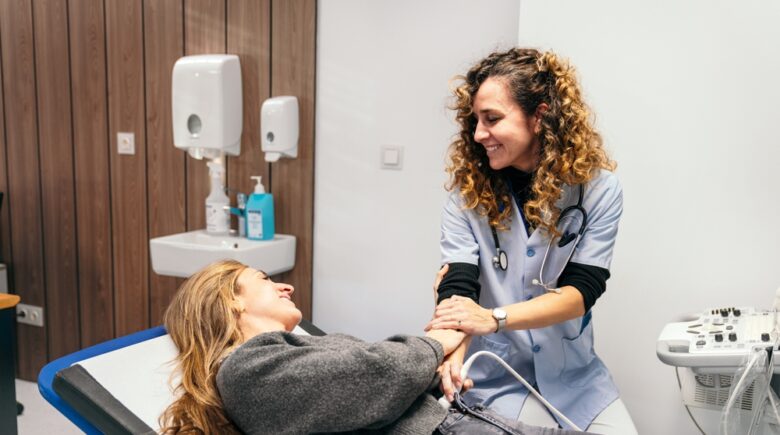Contents
The Affordable Care Act (ACA), also known as Obamacare, has revolutionized healthcare in the United States by providing access to essential preventive care services without cost-sharing. These free services aim to promote early detection, prevention, and treatment of various health conditions, ultimately improving overall well-being. [1]
Under the ACA, most health insurance plans must cover certain preventive services without charging copays, coinsurance, or deductibles.
ACA Adult Services
1. Annual wellness visits: An Annual Wellness Visit (AWV) is a yearly healthcare appointment focused on preventive care, health promotion, and disease detection. It’s a crucial opportunity to assess your overall well-being, identify potential health risks, and develop a personalized plan to maintain optimal health.
2. Blood pressure screening: Blood pressure screening measures the force of blood against the walls of your arteries, providing valuable insights into your cardiovascular health.
3. Cholesterol screening: Cholesterol screening is a blood test measuring the levels of different types of cholesterol in your blood. It helps assess your risk of heart disease and stroke.
4. Colorectal cancer screening: Colorectal cancer screening detects precancerous polyps or cancer in the colon/rectum. It identifies abnormal cell growth, removes precancerous polyps, and diagnoses cancer at early stages.
5. Diabetes screening: Diabetes screening is a medical test used to detect abnormal blood sugar levels, identifying individuals at risk for or already affected by diabetes. The test typically involves a simple blood draw, measuring glucose levels after fasting or consuming a sugary drink.
6. HIV screening: An HIV (Human Immunodeficiency Virus) screening is a medical test used to detect the presence of HIV antibodies or antigens in the blood or other bodily fluids. The test determines whether an individual has been infected with HIV, the virus that causes AIDS (Acquired Immune Deficiency Syndrome).
7. Mammograms: A mammogram screening is a medical imaging test used to detect and diagnose breast diseases, particularly breast cancer, in women. It utilizes low-dose X-rays to produce detailed images of the breast tissue, allowing healthcare providers to identify abnormalities.
Children’s ACA Health Services
The ACA has significantly improved healthcare access for children, ensuring they receive essential medical services for optimal growth and development. Through the ACA, children can remain on their parents’ insurance plans until age 26, providing continuous coverage during critical transitional years. Additionally, the ACA prohibits insurance companies from denying coverage to children with pre-existing conditions, such as asthma or diabetes. [2]
The ACA also emphasizes preventive care, covering essential services like well-child visits, vaccinations, and screenings for vision, hearing, and developmental delays. These services help identify potential health issues early, enabling timely interventions.
Medicaid expansion under the ACA has also increased eligibility for low-income families, ensuring more children have access to comprehensive healthcare. Parents can now prioritize their children’s health without financial burdens, securing a healthier future for the next generation.
Mental Health and Substance Abuse Services
The ACA has greatly improved mental health care, ensuring millions of Americans receive necessary support. The ACA classifies mental health and substance abuse services as essential benefits, making them mandatory for most insurance plans. This guarantees access to critical services, including counseling, therapy, and psychiatric care. Additionally, the ACA prohibits insurance companies from denying coverage due to pre-existing mental health conditions. The law also expands Medicaid, covering low-income individuals and families. By integrating mental health into primary care, the ACA encourages holistic treatment and reduces stigma. This comprehensive approach has significantly improved mental health outcomes nationwide. [3]
How to Access Free Preventive Care Services
The Affordable Care Act mandates free preventative care services for eligible individuals, promoting early detection and prevention of chronic diseases.
To access these services, first check your health insurance plan’s summary of benefits to confirm coverage. Most plans, including Marketplace, Medicare, and Medicaid, cover preventative services without copays or coinsurance.
Free preventative care services include essential screenings and vaccinations, such as blood pressure and cholesterol checks, colon cancer screenings, mammograms, cervical cancer screenings, flu shots, and HPV vaccinations. Well-woman and well-child visits, depression screening, HIV screening for those 15-65, and obesity screening with counseling are also covered.
To schedule covered services, contact your healthcare provider. You can also visit your state’s Marketplace website for information on eligible services and providers. Additionally, contact your state’s Medicaid office to determine eligibility.
By taking advantage of free preventative care services, you can prioritize your health and well-being. Early detection and prevention can save lives and reduce healthcare costs.
1. Check your insurance plan: Verify that your plan covers preventive services without cost-sharing.
2. Find an in-network provider: Visit your insurance company’s website or contact their customer service to find participating providers.
3. Schedule an appointment: Book your preventive care visit with your chosen provider.
4. Ask about covered services: Confirm which services are covered without cost-sharing.
Additional Tips
1. Take advantage of annual wellness visits: Use this opportunity to discuss health concerns and receive recommended screenings.
2. Stay up-to-date on vaccinations: Protect yourself and your loved ones from preventable diseases.
3. Prioritize mental health: Seek help for mental health concerns, including depression and substance abuse.
4. Encourage family members to access preventive care: Ensure your loved ones benefit from these free services.
Conclusion
The Affordable Care Act’s free preventive care services empower Americans to prioritize their health and well-being. By understanding and accessing these services, individuals can detect health issues early, prevent costly medical treatments, improve overall health outcomes, and reduce healthcare disparities.
Don’t miss out on these essential benefits. Take control of your health today and schedule your preventive care visit.
Sources
- What Is The Affordable Care Act (Obamacare)? – Forbes Advisor
- Health Insurance Coverage For Children and Young Adults Under 26 | HealthCare.gov
- The ACA at 10: How Has It Impacted Mental Health Care? | Commonwealth Fund
Contents
The Affordable Care Act (ACA), also known as Obamacare, has revolutionized healthcare in the United States by providing access to essential preventive care services without cost-sharing. These free services aim to promote early detection, prevention, and treatment of various health conditions, ultimately improving overall well-being. [1]
Under the ACA, most health insurance plans must cover certain preventive services without charging copays, coinsurance, or deductibles.
ACA Adult Services
1. Annual wellness visits: An Annual Wellness Visit (AWV) is a yearly healthcare appointment focused on preventive care, health promotion, and disease detection. It’s a crucial opportunity to assess your overall well-being, identify potential health risks, and develop a personalized plan to maintain optimal health.
2. Blood pressure screening: Blood pressure screening measures the force of blood against the walls of your arteries, providing valuable insights into your cardiovascular health.
3. Cholesterol screening: Cholesterol screening is a blood test measuring the levels of different types of cholesterol in your blood. It helps assess your risk of heart disease and stroke.
4. Colorectal cancer screening: Colorectal cancer screening detects precancerous polyps or cancer in the colon/rectum. It identifies abnormal cell growth, removes precancerous polyps, and diagnoses cancer at early stages.
5. Diabetes screening: Diabetes screening is a medical test used to detect abnormal blood sugar levels, identifying individuals at risk for or already affected by diabetes. The test typically involves a simple blood draw, measuring glucose levels after fasting or consuming a sugary drink.
6. HIV screening: An HIV (Human Immunodeficiency Virus) screening is a medical test used to detect the presence of HIV antibodies or antigens in the blood or other bodily fluids. The test determines whether an individual has been infected with HIV, the virus that causes AIDS (Acquired Immune Deficiency Syndrome).
7. Mammograms: A mammogram screening is a medical imaging test used to detect and diagnose breast diseases, particularly breast cancer, in women. It utilizes low-dose X-rays to produce detailed images of the breast tissue, allowing healthcare providers to identify abnormalities.
Children’s ACA Health Services
The ACA has significantly improved healthcare access for children, ensuring they receive essential medical services for optimal growth and development. Through the ACA, children can remain on their parents’ insurance plans until age 26, providing continuous coverage during critical transitional years. Additionally, the ACA prohibits insurance companies from denying coverage to children with pre-existing conditions, such as asthma or diabetes. [2]
The ACA also emphasizes preventive care, covering essential services like well-child visits, vaccinations, and screenings for vision, hearing, and developmental delays. These services help identify potential health issues early, enabling timely interventions.
Medicaid expansion under the ACA has also increased eligibility for low-income families, ensuring more children have access to comprehensive healthcare. Parents can now prioritize their children’s health without financial burdens, securing a healthier future for the next generation.
Mental Health and Substance Abuse Services
The ACA has greatly improved mental health care, ensuring millions of Americans receive necessary support. The ACA classifies mental health and substance abuse services as essential benefits, making them mandatory for most insurance plans. This guarantees access to critical services, including counseling, therapy, and psychiatric care. Additionally, the ACA prohibits insurance companies from denying coverage due to pre-existing mental health conditions. The law also expands Medicaid, covering low-income individuals and families. By integrating mental health into primary care, the ACA encourages holistic treatment and reduces stigma. This comprehensive approach has significantly improved mental health outcomes nationwide. [3]
How to Access Free Preventive Care Services
The Affordable Care Act mandates free preventative care services for eligible individuals, promoting early detection and prevention of chronic diseases.
To access these services, first check your health insurance plan’s summary of benefits to confirm coverage. Most plans, including Marketplace, Medicare, and Medicaid, cover preventative services without copays or coinsurance.
Free preventative care services include essential screenings and vaccinations, such as blood pressure and cholesterol checks, colon cancer screenings, mammograms, cervical cancer screenings, flu shots, and HPV vaccinations. Well-woman and well-child visits, depression screening, HIV screening for those 15-65, and obesity screening with counseling are also covered.
To schedule covered services, contact your healthcare provider. You can also visit your state’s Marketplace website for information on eligible services and providers. Additionally, contact your state’s Medicaid office to determine eligibility.
By taking advantage of free preventative care services, you can prioritize your health and well-being. Early detection and prevention can save lives and reduce healthcare costs.
1. Check your insurance plan: Verify that your plan covers preventive services without cost-sharing.
2. Find an in-network provider: Visit your insurance company’s website or contact their customer service to find participating providers.
3. Schedule an appointment: Book your preventive care visit with your chosen provider.
4. Ask about covered services: Confirm which services are covered without cost-sharing.
Additional Tips
1. Take advantage of annual wellness visits: Use this opportunity to discuss health concerns and receive recommended screenings.
2. Stay up-to-date on vaccinations: Protect yourself and your loved ones from preventable diseases.
3. Prioritize mental health: Seek help for mental health concerns, including depression and substance abuse.
4. Encourage family members to access preventive care: Ensure your loved ones benefit from these free services.
Conclusion
The Affordable Care Act’s free preventive care services empower Americans to prioritize their health and well-being. By understanding and accessing these services, individuals can detect health issues early, prevent costly medical treatments, improve overall health outcomes, and reduce healthcare disparities.
Don’t miss out on these essential benefits. Take control of your health today and schedule your preventive care visit.






